We have dared to do so and have set out on the Experiment 30 days without sugar let in. Sugar is addictive, promotes the formation of cancer cells, leads to obesity and diabetes, deteriorates intestinal health and also our brain activity. Yet it's in almost all the food we get in a traditional supermarket. Time to escape from this madness and start an experiment that we will present here in the Natural Health Blog want to share.
In the following, you will learn how we use the term sugar free define how we ate and what you should look for when living without sugar.
Here is another short Table of contents about our experiences:
What does sugar-free mean?
It is important to know in advance that for the period of this Challenge we are no added sugar (industrial sugar) in products have. So fructose from fruit and dried fruit we have not avoided.
Sugar and sugar substitutes have many different designations: sugar, birch sugar, dextrose, glucose, added fructose, coconut blossom sugar, corn syrup...
For our personal sugar fast, we have eliminated all products where these terms appear in the ingredients list. On the following picture is an example for you.
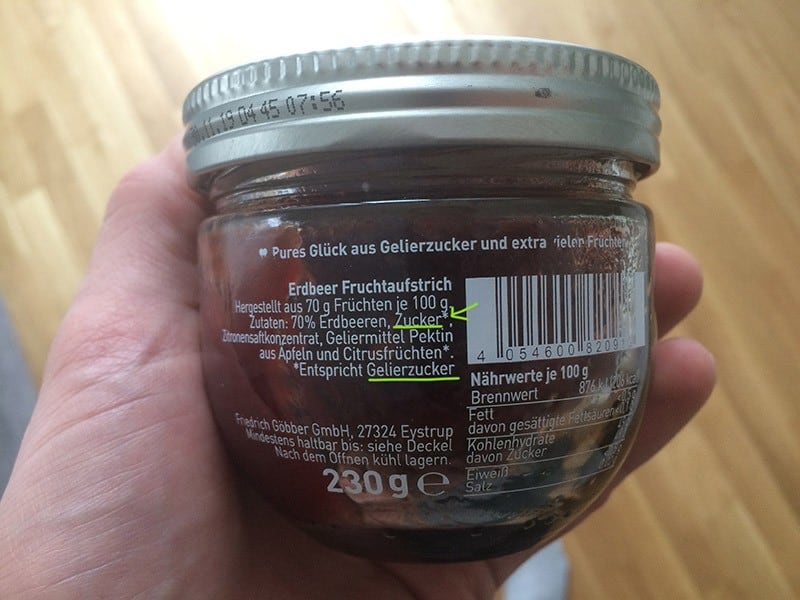
While the ingredients for our 30 days without sugar took precedence, we more or less ignored the nutrition table. Because if it says, for example, "carbohydrates 10 g" and "of which sugar, 5 g", it doesn't mean that 5 g of sugar has been added there. Our body converts it however to sugar. But since we only fast on sugar Added sugar in food, the focus was on the ingredients.
Why live sugar free & sugar fast?
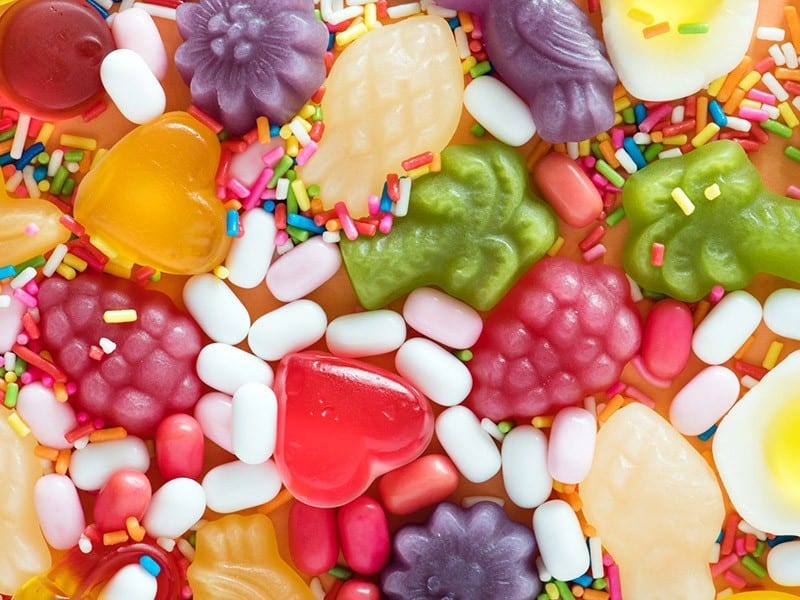
It makes sense to be aware of the disadvantages of sugar once again, so that you can really follow through with the 30 days without sugar. Here are some things to keep in mind during the sugar-free period. Sugar...
- is addictive
- accelerates the growth of cancer cells
- provokes obesity and diabetes
- inhibits intestinal health
- slows down our brain activity
As I write these lines, I also realize again how naively we have otherwise shopped. Even if the Shopping without plastic worked out, there was still a lot of sugar involved.
"Sugar is 'the most dangerous drug of our time and should come with smoking-style health warnings. This may seem exaggerated and far-fetched, but sugar is dangerous and is easy to obtain. Just as with smoking labels, soft drinks and sweet products should come with the warning that sugar is addictive and bad for the health." -
Paul van der Velpen (Dutch Health Chief)
So if, according to this statement, sugar is "the most dangerous drug of our time" - why on earth aren't products also labeled as conspicuously as cigarettes are? A small side fact at this point: Every day, by the way, 10 billion cigarettes are consumed worldwide. Cigarette butts thrown into the environment, although they contain toxins and also Plastic contain
We wanted to find out what would happen if we gave up sugar for 30 days and what foods and meals would even be considered if you wanted to live sugar-free.
Start into a sugar-free life
We started our sugar-free challenge a day later than planned because we wanted to use up other foods before they went bad. Pickles in a jar, for example - yes, that's right, they also contain sugar. By using up the foods first, we are doing our own part to reduce the Reduce food waste.
From our own experience, we therefore recommend that you also plan one or two transition days before you start your sugar-free life. During this time, you can also plan which meals you can and want to eat during your 30 days without sugar.
Meals without sugar we ate
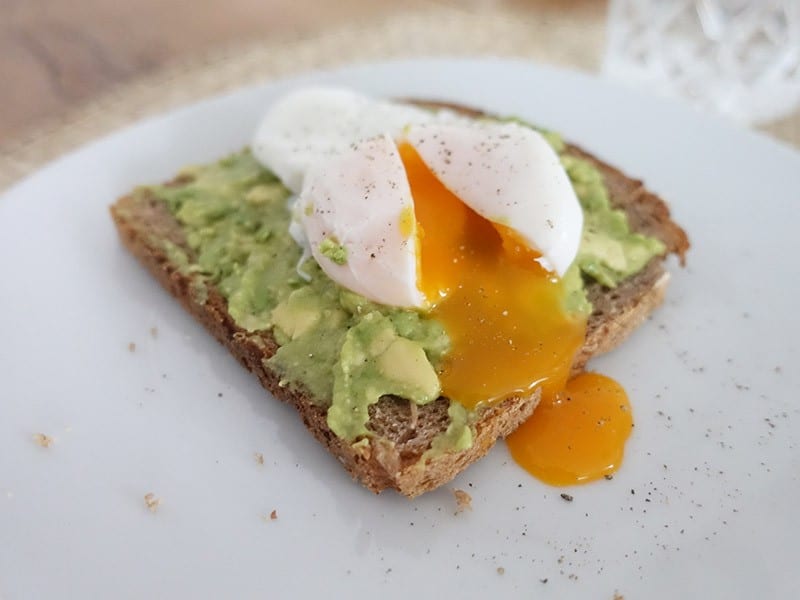
If more than 3/4 of the food in an ordinary supermarket contains sugar, then suitable meals for the Challenge are naturally scarce. In our experience, however, it is quite easy to stay sugar-free if you cook a lot yourself. Ready-made meals are full of sugar and therefore a real thorn in the side of a successful sugar fast.
These meals and snacks we have used, for example, for life without sugar:
- Vegetable noodle soup and served with bruschetta on homemade bread (made from wholemeal spelt flour, egg and ricotta)
- Ribbon noodles with shrimps & broccoli
- Wholemeal bread with avocado and poached egg
- Porridge / Oatmeal muesli With fruits
- Green salad with tomatoes and avocado bread
- Scrambled eggs with fresh spinach
- Fruit & Vegetables or dried fruit
- Nuts
- Organic Crackers
As I said, cooking for yourself is the key to the Sugar-Free Challenge. If you buy products not in bulk but in packaging, then always look very carefully at the list of ingredients. By the way: It is, of course, difficult to be so live plastic free, as before, but somehow it still worked out well.
How the body reacts to sugar withdrawal

Even though my friend had similar experiences, I would like to give you an insight into my personal well-being during the 30 days without sugar. Because it doesn't pass you by completely without a trace when you suddenly stop consuming sugar. Here are some of my experiences:
- Hands were shaking: About the 6th day of the Sugar Free Challenge, my body reacted to the sugar fast for the first time. My hands shook slightly for about 3-4 hours. A clear reaction: my body is craving for sugar.
- Headache: In the course of the second week without sugar, I also had a slight headache. Of course, I can't diagnose whether this was really a result of the sugar withdrawal.
- Body gets used to it: Even though these experiences make it seem like I was doing badly, it wasn't all that bad. My body eventually accepted that it was no longer getting added sugar. From the third week on, I had no problems whatsoever going without sugar. I got to know enough sugar-free meals as well as no more physical complaints.
Like your How your body will react to the sugar-free lifestyle is anyone's guess. It also depends, for example, on how much sugar you normally consume in your everyday life. I can only share my personal feelings with you here - but it's best if you just find out for yourself.
30 days without sugar - our experience
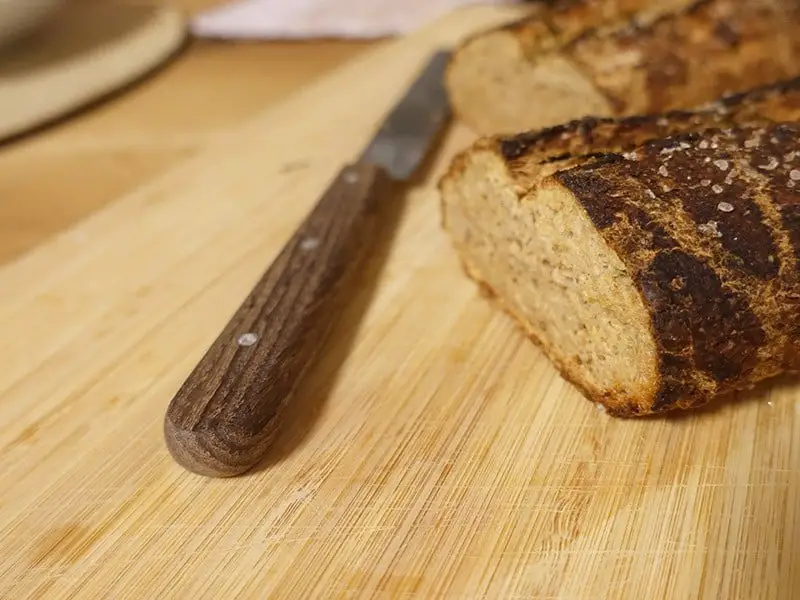
It's definitely worthwhile to simply commit to these 30 days without sugar. For some it will be totally easy, for others it will be rather difficult. But in the end, you will have gained valuable experience of life without sugar. Your body will usually confirm that you were addicted to sugar without realizing it. Then it will thank you for reducing sugar consumption so much.
Avoiding sugar will help you do thisWe need to question products even more and give preference to healthier and more environmentally friendly products. Are convenience foods, for example, simply sprinkled with sugar so that we become addicted to them and buy the products regularly? Or does the added sugar only serve a tasteful purpose without any commercial ulterior motives?
No matter what is behind it: Since the sugar-free experiment, we have significantly reduced our personal sugar consumption in any case.
We are looking forward to your experiences, questions and ideas about sugar-free living. Just leave us a comment.
Stay healthy,

PS: Have you ever dealt with vegan nutrition? Learn for example in the article Food & Environmentwhat impact your meals have on nature. If you are more interested in the plastic-free life itself, then I recommend you my Book plastic free for beginners.

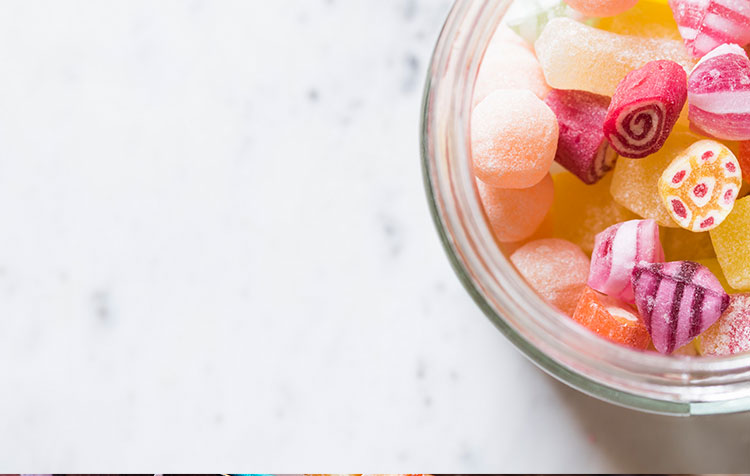




Sugar-free is actually only if you cook yourself, it is even more difficult if you are still vegan, but everything can be learned.Even I with my 40years learn every day, only the kids do not pull so with:).Difficult I find plastic-free shopping, especially if you live in a small town, with little choice.Here is except Edeka, Lidl and Netto not really much choice.It is a pity that unpacked stores are only in the big cities.
Hi Jenny, great that you are so committed to a natural lifestyle. To buy plastic-free, look at the next weekly market. But also at Edeka and Co you get out well plastic-free. Yogurt in a glass jar or noodles from cardboard packaging. Example.
Many greetings
Christoph
It is not so easy to say "no" to sugar. I wish you much success in your challenge!
Yes, you're right. But it's not impossible either - just stay away from foods with added sugar and always ask in the restaurant whether sugar is added there 😉.
Best regards,
Christoph
Comments are closed.